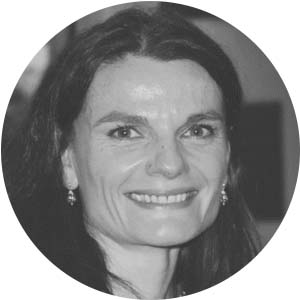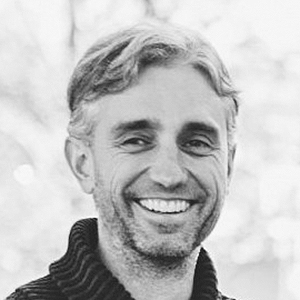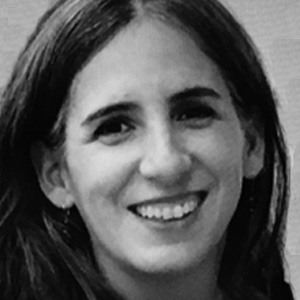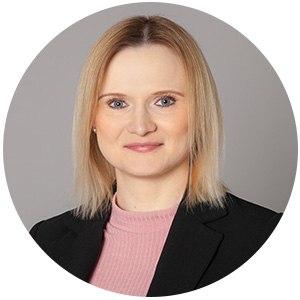This Conference brings together regulatory authorities and industry representatives and political decision-makers to discuss the latest regulatory developments in Aquatic and Terrestrial ecotoxicology and risk management.
Would you instead prefer to join on-site in Dusseldorf? Then you can find further information here!
Plant Protection Products (PPPs) are strictly regulated within the European Union and in abroad countries. The risk management and ecotoxicological assessment of PPPs, essential to produce compliant products, poses challenges across the entire pesticide industry.
The ECOTOX Conference brings together representatives from regulatory and industry backgrounds, as well as political decision-makers to discuss the latest regulatory developments. It keeps track of scientific progress, risk assessment methods and any crucial novelties in the ERA of PPPs.
Professionals working in the fields of:
Sectors that should take part:
Picture Credit: © hfox – Fotolia.com, © reluk – Fotolia.com
PLEASE NOTE: The indicated times refer to Central European Time CET.
For further time zones, please view here.
Peter Dohmen, Independent Consultant, Germany
Jacoba Wassenberg, Dutch Board for the Authorisation of Plant Protection Products and Biocides (Ctgb), The Netherlands
Rachel Sharp, European Food Safety Authority (virtual presentation)
Karin Nienstedt, European Commission, Belgium (virtual presentation)
Anne Alix, Corteva Agriscience, United Kingdom
Virginie Ducrot, Bayer Crop Science, Germany
Amy Brooks Cambridge Environmental Assessments / RSK ADAS, United Kingdom
Gertje Czub, Federal Office of Consumer Protection and Food Safety (BVL), Germany
Jens Dauber, Johann Heinrich von Thünen Institute, Germany
Mariana Ledesma, Swedish Chemicals Agency (KEMI), Sweden
Pierre-François Chaton, French Agency for Food, Environmental and Occupational Health & Safety (ANSES), France
Manuela Trobej, Austrian Agency for Health and Food Safety (AGES), Austria
Peter Dohmen, Independent Consultant, Germany
Jacoba Wassenberg, Dutch Board for the Authorisation of Plant Protection Products and Biocides (Ctgb), The Netherlands
Joost Lahr, Dutch National Institute for Public Health and the Environment (RIVM), The Netherlands
Emily McVey, Dutch Board for the Authorisation of Plant Protection Products and Biocides (Ctgb), The Netherlands
Edward A. Straw, University College Dublin, Ireland (virtual presentation)
Roman Ashauer, Syngenta, Switzerland
Michael Faupel, Rifcon, Germany
Bas Buddendorf, Wageningen University, The Netherlands
End of the Conference
Folgende Referenten haben bereits zugesagt, weitere folgen in Kürze.
Name
Unternehmen

Anne Alix
Corteva Agriscience, United Kingdom
Anne Alix joined Dow AgroSciences, now Corteva Agriscience, in 2011, as Policy and Risk Management Leader for Europe, Middle East and Africa. She has been working in the area of plant protection products risk assessment for 20 years. After a PhD in Integrated Pest Management (IPM) at the University of Rennes, Anne joined the French National Institute for Research in Agronomy (INRA) as an ecotoxicologist in the scientific unit for the risk assessment of crop protection products. Anne was nominated head of the Environment and Ecotoxicology risk assessment unit at the French Agency on the safety of Food (AFSSA, now ANSES), where she initiated scientific collaborations with the pesticide unit of EFSA. Anne then joined the French Ministry of Agriculture as the deputy head of the Section for Regulation of Plant Protection Products and fertilizers, in charge of the implementation of risk mitigation measures for pesticides and of post registration monitoring.
mehrweniger
Roman Ashauer
Syngenta, Switzerland
Roman Ashauer is Eco-modelling Lead at Syngenta. Previously he was Associate Professor at the University of York, UK, where he led a research group until 2018. He has won several awards for his research on effect modelling for environmental risk assessment of chemicals.
mehrweniger
Amy Brooks
Cambridge Environmental Assessments / RSK ADAS, United Kingdom
Amy Brooks is a regulatory ecotoxicologist with more than ten years’ experience in environmental risk assessment. As Head of the Regulatory Risk Assessment team at Cambridge Environmental Assessments, she provides technical, strategic and regulatory leadership to risk assessment and ecotoxicology functions across thew company. Prior to joining CEA in 2014, she worked as a senior ecotoxicology consultant at a multi-national consultancy, providing ecotoxicology support for pesticide submissions at the national and European level. Before entering the private sector, Amy worked at the Chemicals Regulation Directorate (part of HSE, the UK regulatory authority), evaluating pesticide and biocide dossiers for both active substances and formulated products.
mehrweniger
Bas Buddendorf
Wageningen University, The Netherlands
Bas Buddendorf is an Ecological Modeller, whose primary focus is on the integration of fate and effect models. Outputs from this work can be used to, for example, develop new approaches for risk assessment and scenario development at landscape scales.
mehrweniger
Pierre-François Chaton
French Agency for Food, Environmental and Occupational Health & Safety (ANSES), France
Pierre-François Chaton is Deputy Head of the Ecotoxicology and Environmental Fate Unit and a senior risk assessor in ecotoxicology at the French Agency for Food, Environmental and Occupational Health and Safety (ANSES). He has more than 16 years of experience in regulatory risk assessment of plant protection products, including method development.
mehrwenigerGertje Czub
Federal Office of Consumer Protection and Food Safety (BVL), Germany

Jens Dauber
Johann Heinrich von Thünen Institute, Germany
Jens Dauber is a biologist with a specialisation on landscape ecology and agroecology. He is the Director of the Thünen Institut of Biodiversity and Professor for Biodiversity of Agricultural Landscapes at the TU Braunschweig.
mehrweniger
Peter Dohmen
Independent Consultant, Germany
Peter Dohmen recently retired from his position as a Senior Ecotoxicologist at the Agricultural Research Centre of BASF in Limburgerhof/Germany. Having occupied this position for several decades, he brings along profound knowledge and experience in the ecotoxicology field and now works as an independent consultant.
mehrweniger
Virginie Ducrot
Bayer Crop Science, Germany
Virginie Ducrot is the Head of the Ecotoxicology Group at Bayer Crop Science and has over 15 years of research experience ecotoxicology. Having worked as scientist in the French National Research Institute for Agriculture, Food and the Environment (INRAe), as external expert for the PPR Panel at EFSA, and as member of the VMG-eco panel at OECD, she has promoted innovative methods in ecotoxicology (aquatic, terrestrial plants) and effect modelling for the environmental risk assessment of chemicals.
mehrweniger
Michael Faupel
Rifcon, Germany
Michael Faupel is the Deputy Head of the Regulatory Strategies Department at Rifcon in Germany. He holds a PhD from Bielefeld University and has previously led Rifcon’s Ecotoxicology Team.
mehrweniger
Joost Lahr
National Institute for Public Health and the Environment (RIVM), The Netherlands
Joost Lahr is a Senior Expert for Water Quality at the Dutch National Institute for Public Health and the Environment (RIVM). Joost has a background in environmental science and ecotoxicology. He has previously worked as Environmental scientist/Ecologist at Wageningen Environmental Research, as an ecotoxicologist for the environmental consultancy AquaSense/Grontmij and for the United Nations Food and Agriculture Organization (FAO) in Senegal as an Expert in Ecotoxicology and Hydrobiology.
mehrweniger
Mariana Ledesma
Swedish Chemicals Agency (KEMI), Sweden
Mariana Ledesma has been working as a Regulatory Ecotoxicologist at the Swedish Chemicals Agency (KEMI) conducting ecotoxicology data evaluation and risk assessment, since 2009. As Swedish representative for the Northern Zone in the ecotoxicology section for plant protection products, she has led the work with the interim approach for bees as well as participated in the break-out group responsible for the update of the Higher tier for birds and mammals.
mehrweniger
Emily McVey
Board for the Authorisation of Plant Protection Products and Biocides (Ctgb), The Netherlands
Emily McVey is an experienced Regulatory Toxicologist and works as a Risk Assessor in ecotoxicology at the Ctgb. Her specialties include environmental toxicology, wild vertebrates (birds, mammals, amphibians, fish), molecular mechanisms of toxicity, neurodevelopmental toxicity and endocrine disruption testing and assessment.
mehrweniger
Karin Nienstedt
European Commission, Belgium
Karin M. Nienstedt leads the Sector Pesticides - Placing on the Market in the Unit Pesticides and Biocides, European Commission (Directorate General for Health and Food Safety). Before joining the European Commission she worked for the European Food Safety Authority and as a researcher in the areas crop protection, ecotoxicology, and biological control.
mehrwenigerRachel Sharp
European Food Safety Authority (EFSA), Italy
Rachel Sharp is a Regulatory Ecotoxicologist with 18 years of experience. The first 7 years of her career were spent working in the UK competent authority for pesticides whilst the last 11 years have been in the Pesticides Unit of the European Food Safety Authority (EFSA). She has an in-depth knowledge of the EU Regulatory framework for the assessment of pesticides and wide experience of risk assessment. In recent years she has been scientific coordinator for the update of the EFSA guidance document for the risk assessment of birds and mammals to pesticides.
mehrweniger
Edward Straw
University College Dublin (UCD), Ireland
Edward Straw is a Post-doctoral Researcher at Trinity College Dublin. He works on the impacts of pesticides on bee health, specifically co-formulants and adjuvant and their impacts on bumblebees. He finished his PhD at Royal Holloway University of London in 2020, worked on the PROTECTS project at University College Dublin through 2021, and now has Irish Research Council funding to pursue his own research goals. He is looking to improve how we regulate pesticides by understanding the contributions of overlooked pesticide ingredients to overall formulation toxicity. His work has focussed on co-formulants in herbicides and fungicides. Edward also publishes on the impacts of glyphosate on bees.
mehrweniger
Manuela Trobej
Austrian Agency for Health and Food Safety (AGES), Autria
Manuela Trobej is a Senior Expert in the field of ecotoxicology at the Austrian Agency of Health and Food Safety (AGES), where she is responsible for the evaluation and assessment of plant protection products. She specialises mixture toxicity risk assessment, computational toxicology and the evaluation of endocrine disrupting properties of active substances.
mehrweniger
Jacoba Wassenberg
Board for the Authorisation of Plant Protection Products and Biocides (Ctgb), The Netherlands
Jacoba Wassenberg is an environmental risk assessor at the dutch Ctgb, specialized in assessing the ecotoxicological risk of plant protection products to bees, birds and mammals.
mehrwenigerTeilnahmepreis: € 995,00 zzgl. MwSt.
Im Teilnahmepreis sind folgende Leistungen enthalten:
Vertreter:innen einer Behörde oder einer öffentlichen Hochschule erhalten einen ermäßigten Teilnahmepreis von € 495,00 zzgl. MwSt. (Nachweis per Fax oder E-Mail erforderlich). Der Sonderpreis ist nicht mit anderen Rabatten kombinierbar.
Gruppenrabatt
Bei gemeinsamer Anmeldung aus einem Unternehmen erhalten der dritte und jeder weitere Teilnehmer 15 % Rabatt.
Buchen ohne Risiko
Die Teilnahme an unseren Online-Veranstaltungen können Sie bis zu 1 Woche vor Veranstaltungsbeginn kostenfrei und ohne Angabe von Gründen schriftlich stornieren. Bei späteren Stornierungen sowie bei Nicht-Login zur Online-Veranstaltung können keine Teilnahmegebühren erstattet werden.
Sie erhalten jedoch in diesem Fall von uns nach der Veranstaltung Zugang zu den Dokumentationsunterlagen.
Einen Ersatzteilnehmer können Sie jederzeit kostenfrei benennen.

Anne Möller
Inhalt und Konzeption
+49 231 75896-84
amoeller@akademie-fresenius.de

Anne Möller
Inhalt und Konzeption
+49 231 75896-84
amoeller@akademie-fresenius.de

Anne Möller
Inhalt und Konzeption
+49 231 75896-84
amoeller@akademie-fresenius.de

Jennifer Zerth
Organisation und Teilnehmermanagement
+49 231 75896-79
jzerth@akademie-fresenius.de

Jennifer Zerth
Organisation und Teilnehmermanagement
+49 231 75896-79
jzerth@akademie-fresenius.de
06.12. — 07.12.2023, Leonardo Royal Hotel Köln - Am Stadtwald
Präsentieren Sie Ihr Unternehmen auf unserer Veranstaltung.
Persönlich und zielgruppengenau stellen Sie Ihre Produkte und Dienstleistungen vor. Gerne informieren wir Sie unverbindlich über die verschiedenen Möglichkeiten – von der Auslage von Produktinformationen bis hin zum Ausstellungsstand.
Gerne beraten wir Sie persönlich:

Monika Stratmann
Telefon: +49 231 75896-48
info@akademie-fresenius.de
Wir bieten Journalist:innen und Redakteur:innen eine Plattform, um in Kontakt mit Expert:innen zu treten.
Wenn Sie als Redakteur:in der Fachpresse Interesse an einem Pressepass oder einer Medienpartnerschaft haben, kontaktieren Sie uns bitte frühzeitig. Wir beraten Sie gerne.
Sprechen Sie uns an:

Katharina Geraridis
Telefon: +49 231 75896-67
presse@akademie-fresenius.de
© Die Akademie Fresenius GmbH